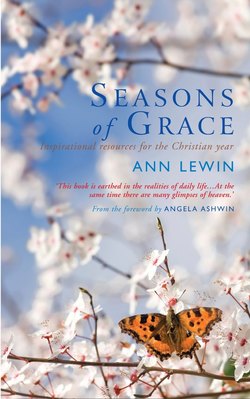Читать книгу Seasons of Grace - Ann Lewin - Страница 18
На сайте Литреса книга снята с продажи.
ОглавлениеUsing the Psalms
The Psalms are a very rich resource, tested and tried in many situations. People often have their favourite quotations, which they call to mind as appropriate. As well as providing words of comfort or encouragement, the Psalms show us a way of bringing all our feelings to God. They give us words to use to express our joy and trust; they also give us words to use when we are angry or in despair. They offer us a model of setting alongside the awfulness of life a statement about God, sometimes linked with a ‘nevertheless’. They do not ask us to resolve our problems by saying that everything is going to be all right. They ask us to face the difficulty, and hold it in tension with what we believe about God, and wait.
We are sometimes worried by the intensity of our feelings, and think that we can’t let God know how angry and violent we feel. After all, ‘nice’ people don’t think or say the things we would really like to express! But actually there is nothing in the Christian gospel about being ‘nice’. There is plenty about being loving and just, and straight in our dealings with others. Sometimes the only right response is anger. There is nothing about us that God does not already know, and nothing about us that will stop God loving us, whatever we feel.
It is important to look at the whole of a Psalm, and not leave out the hard verses. Liturgically we may need to omit some verses: it would probably not be very edifying for someone who had just dropped in to see what our worship was like, to hear everyone saying, ‘Break their teeth, O God!’ (Psalm 58.4). For personal use, though, we need to see the Psalms as they are, and experience the liberation of learning that honesty with God can be the beginning of a vigorous relationship with him.
It is a useful exercise sometimes to write a psalm for ourselves. There is great value in writing out what we feel, especially in times of anger or bewilderment or despair. The process can help us to see the situation in a more objective way, and often cuts it down to size, preventing our imaginations from running away with us in unhelpful ways.
This is how one person at a workshop responded to the invitation to write a psalm.
He was grieving the death of his daughter from leukaemia, and reflected on Psalm 137, set in the Book of Common Prayer for use on the 28th evening of the month.
His reflection centred on the last verse of the Psalm: ‘Blessed shall he be that taketh thy children: and throweth them against the stones.’
28th Evening
You took our child, God. You threw her on the rocks of cancer. You tortured her little body with surgery and chemotherapy and radiotherapy, and you tortured us with hope. You did that for eighteen months. And then for a year you mocked us, as her hair grew back and that sharp and musical mind flourished as never before.
And then you struck, and the laughter died in our throats. At least you spared us hope the second time.
Now we could only watch with her, and wait, as the talents which seemed about to burst so joyfully from Hannah withered and died. And we talked together of what would be, knowing that as we did, it was only of what might have been.
You threw her against the stones one last time, and she died on the 28th evening – just ten days before her sixth birthday. And I cannot forgive you for that, God. Hannah has, that I know. For all that she endured at your hands, she still went on loving you. Your abused child. Because she didn’t know any better. Thank God I do not have her faith, her incapacity to hate.
What were you doing? I was the one with her. I was the one who held her in my arms for the injections. I was the one who calmed her fears during the nose bleeds.
Who held You?
Who gave you strength?
Who so encompassed you around with love that it flowed out from you to Hannah without despair? She could only love me so trustingly because she knew what a Father’s love could be.
By the waters of Babylon I sat down and wept – with you. With you from the first morning to the 28th Evening.
And with you now
And with Hannah now
And she with me though I no longer weep for her.
Though still I shall weep with you whenever you visit the waters of Babylon.
Robin Harger
(used with permission)
